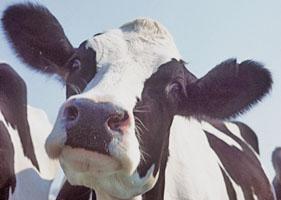 At the U.N. climate talks yesterday, Agriculture Secretary Tom Vilsack announced an agreement with U.S. dairy producers to accelerate adoption of innovative manure-to-energy projects on American dairy farms with the goal of reducing methane gas emissions by 25% by 2020.
At the U.N. climate talks yesterday, Agriculture Secretary Tom Vilsack announced an agreement with U.S. dairy producers to accelerate adoption of innovative manure-to-energy projects on American dairy farms with the goal of reducing methane gas emissions by 25% by 2020.
Agriculture accounts for about 7 percent of the greenhouse gas emissions in the United States, according to the AP.
“This historic agreement, the first of its kind, will help us achieve the ambitious goal of drastically reducing greenhouse gas emissions while benefitting dairy farmers,” said Vilsack. “Use of manure to electricity technology is a win for everyone because it provides an untapped source of income for famers, provides a source of renewable electricity, reduces our dependence on foreign fossil fuels, and provides a wealth of additional environmental benefits.”
Anaerobic digester technology is a proven method of converting waste products, such as manure, into electricity. The technology utilizes generators that are fueled by methane captured from the animal manure. Currently, only about 2 percent of U.S. dairies that are candidates for a profitable digester are utilizing the technology. Dairy operations with anaerobic digesters routinely generate enough electricity to power 200 homes.
With this agreement, the USDA and the Innovation Center for U.S. Dairy will undertake research initiatives, allowing implementation flexibility, and enhancing marketing efforts of anaerobic digesters to dairy producers.
The partnership will work to increase the number of anaerobic digesters supported by USDA programs. Beyond promoting the digesters, the agreement will encourage research, and development of new technologies to help dairies reduce greenhouse gas emissions.
Thomas P. Galleagher, CEO of the Innovation Center for U.S. Dairy and Dairy Management Inc., added, “This memorandum came about because of the commitment of U.S. dairy farmers and the dairy industry to a sustainable future that includes both environmental and economic viability,” said Gallagher. “Sustainability goes hand in hand with our heritage of taking care of the land and natural resources while producing nutritious products for consumers.”



















